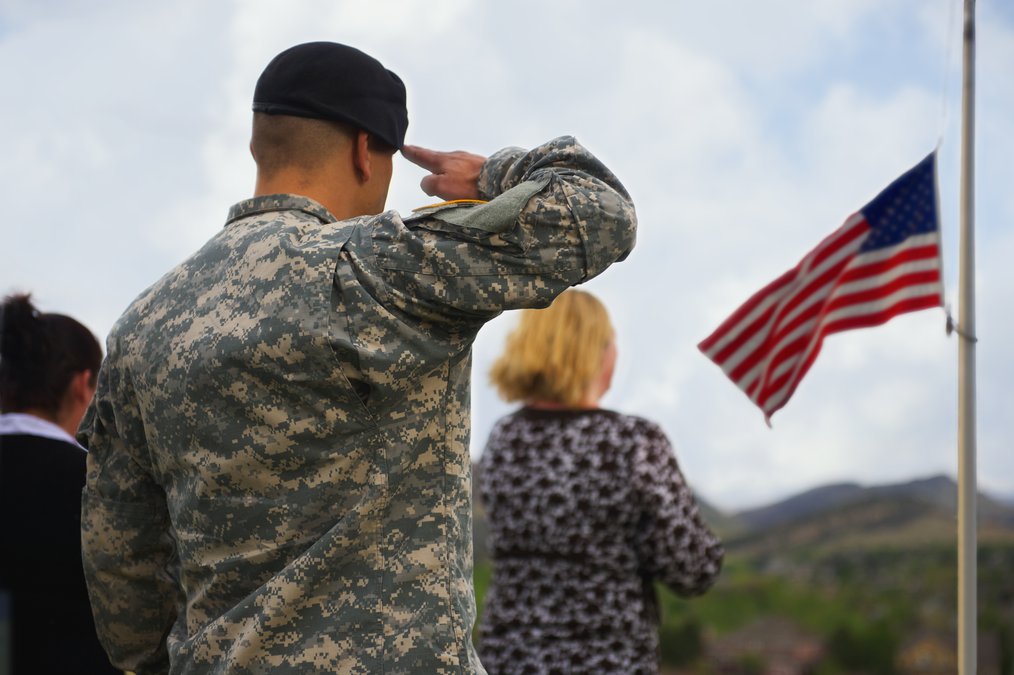COVINGTON, Ga. — Veterans are “indoctrinated with a warrior’s mentality” while serving in the military and often find the process of transitioning to civilian life challenging.
“Compound those challenges with substance abuse and/or mental health issues, you generate a perfect storm for veterans to get into trouble,” said Richard Kringer, coordinator of the Veterans Court program within the Alcovy Judicial Circuit.
The judicial circuit offers the Veterans Court program to some veterans charged with crimes in Newton and Walton counties, Kringer said.
State law allows any court in Georgia with jurisdiction over criminal cases the option of establishing a court division to provide an alternative to the traditional judicial system for some defendants who are military veterans.
The court can refer the defendant in any criminal case to the court program if the defendant is a veteran and meets the eligibility criteria, according to state law.
Superior Court Judge Layla Zon said veterans courts allow the local judicial system to use a specialized approach to address the unique experiences and issues of veterans charged with crimes.
“A veterans treatment court judge, supported by a strong inter-disciplinary team, is able to better understand the issues that a veteran may be struggling with, such as substance addiction, PTSD, traumatic brain injury, or military sexual trauma,” Zon said.
“A primary goal of the program is to reduce recidivism through treatment and intervention with immediate judicial review that supports addressing the veteran’s potential co-occurring substance abuse and trauma problems, utilizing a sanction (and) incentive process,” she said.
If the participant successfully completes the program, the participant's sentence may be reduced, according to state law.
The local court program’s inter-disciplinary team and program are based in Newton County but serve those who live in both Newton and Walton counties, Zon said.
A planning group manages the Veterans Court and includes Zon, who is the court’s judge, and Kringer; Jillian Hall of the Alcovy Judicial Circuit's District Attorney’s office; attorney Stephanie Tomys; and Antwanella Hall of the Georgia Department of Community Supervision.
Others on the planning group include Antoinette Major and Earl Nesbitt, both of the Newton County Sheriff’s Office; Dwayne Grayer, Anner Pitman and James Muse, all of the Walton County Sheriff’s Office; Johntavious Jones and Jamie Story, both of View Point Health; Thindwia Cabiness, a veterans justice outreach specialist; Dr. Priscilla Faulkner and Stacia Schmidt, both of Southeastern Psychological Associates; and veteran mentors Gil Baca, James Johnson, David Lopshire and Anthony Jewel.
Kringer said veterans have a better chance at “overcoming their adversities” when working in collaboration with the court, VA, local treatment providers and other resources.
The Veterans Court program uses a veteran justice outreach specialist to serve as a mediator between the veteran, the veterans court and the VA, Kringer said.
Zon said a veterans treatment court typically is familiar with the operations of the Veterans Health Administration, Veterans Benefit Administration, Georgia Department of Veterans Affairs, veterans service organizations, and volunteer veteran mentors and know how they can all assist veteran defendants.
Funding comes from state grants to local accountability courts administered by the state Council of Accountability Court Judges (CACJ) manages.
The grants include funding for the fiscal year, supplemental funds for meeting additional needs throughout the year; and an emergency grant for such needs as drug testing supplies and treatment due to an unanticipated increase in the number of program participants, Kringer said.





